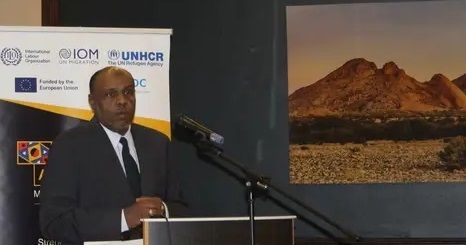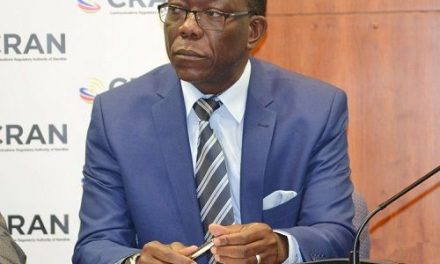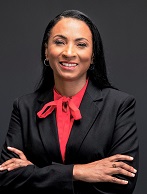
What Diaspora? Whose Diaspora? Low priority remains a challenge

By Adolf Kaure.
The Southern African Development Community’s (SADC’s) Regional Director of the International Organization for Migration, Ashraf El Nour, addressed a workshop running this week, saying there is a low prioritization of the Diaspora by the Diaspora itself and that this remains a challenge for Africans hoping to cash in on remittances from their family members living abroad.
Mainstreaming the percieved diaspora into the African development paradigm as a possible source of revenue, is currently under discussion at a multi-sectoral workshop on a strategy to develop and implement a national policy on the Namibian diaspora.
According to El Nour, the lack of trust between public institutions that deal with the diaspora and diaspora partners themselves is one of the obstacles to effective diaspora engagement.
“There are also challenges in maintaining reliable data on individuals and organizations within the diaspora, as there is an overall lack of capacity (human and financial resources in particular) to map the diaspora and engage them in a targeted and meaningful manner.”
“In many SADC countries, there is a clear misalignment of diaspora engagement strategies with national development planning, its processes and its financing priorities (and related financing strategies and processes), which could contribute to recuperate the trust of the diaspora to government plans,” he said.
El Nour added that the younger, second and third-generation diaspora remains a relatively untapped resource for engaging with their communities of origin.
“Financial engagement with migrant communities abroad is often equated with remittances and there are not many examples of successful engagement with the diaspora for the purpose of investment in their communities of origin.”
“It is therefore crucial to create the ecosystem for better understanding the potential of diaspora investment in any country, which will require careful planning, product design, and dedicated resources in execution to reach and mobilize the diaspora meaningfully,” said El Nour.
The regional director is however optimistic that the workshop will provide solutions to the challenges, saying that the many stakeholders from across the Diaspora, who gathered for the workshop, would come up with solutions after sharing the knowledge, experiences, and insights culminating into the development of an effective diaspora policy.
The three-day workshop concludes on Friday 12 May.












































